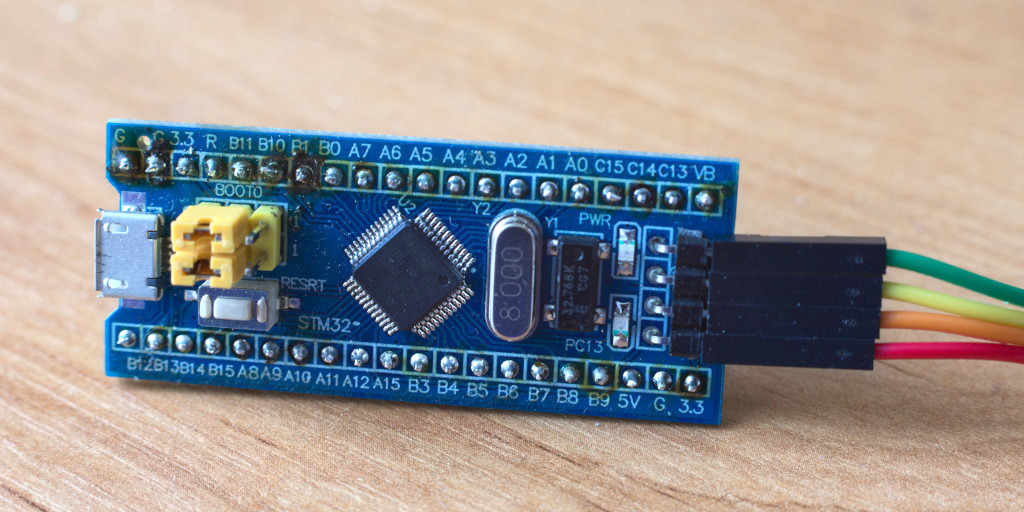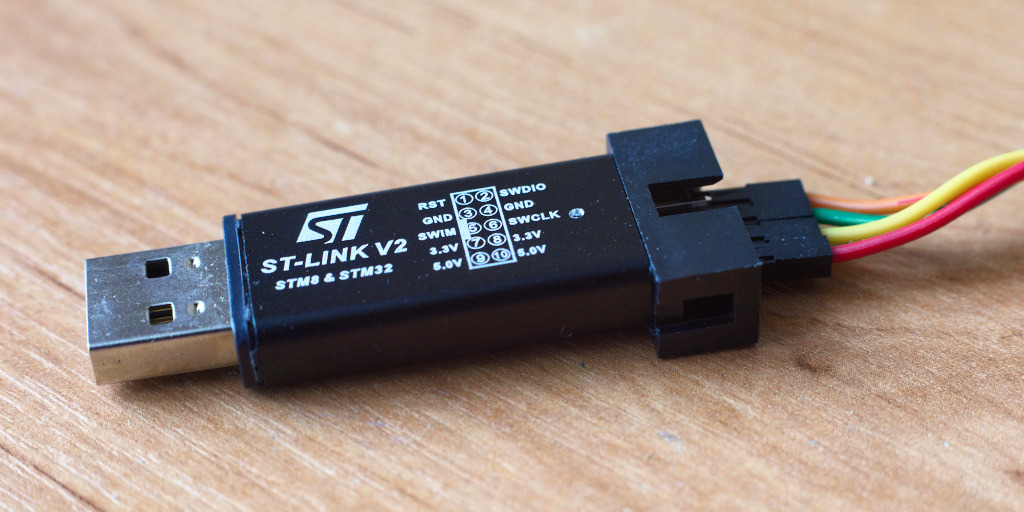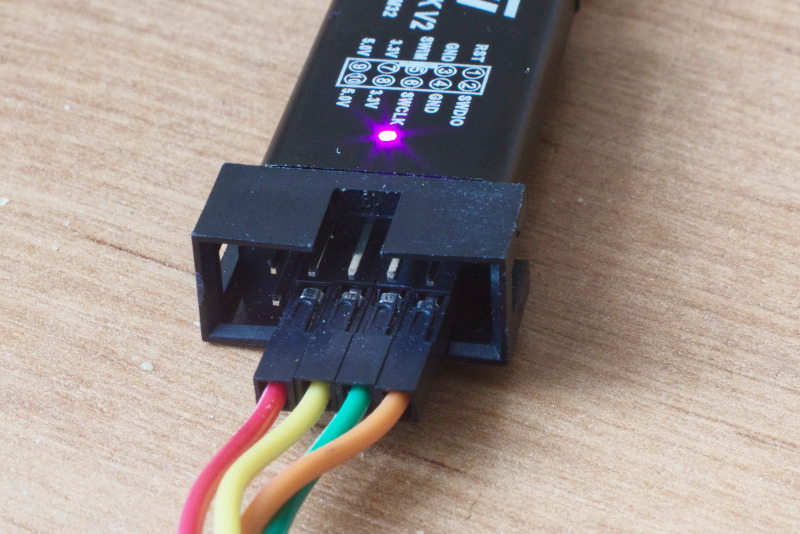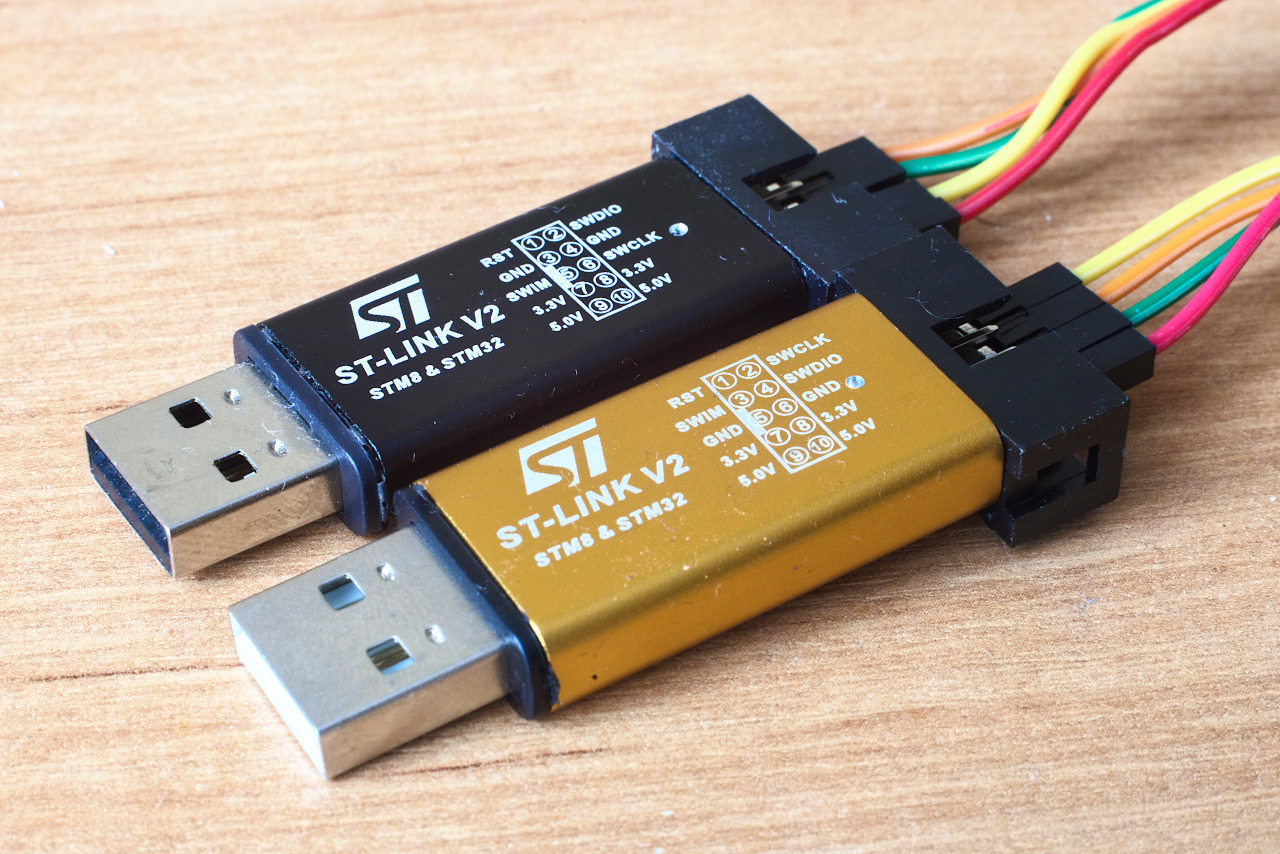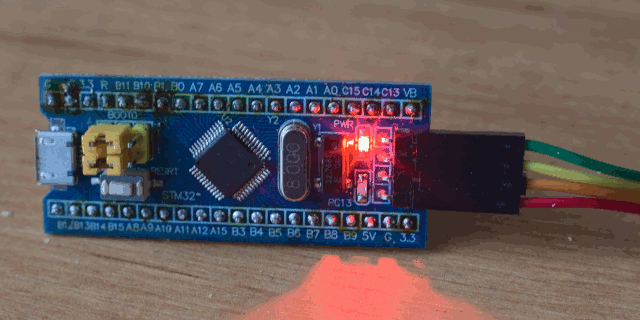Development board (a cheap blue pill clone with STM32F103C8)
https://www.laskarduino.cz/bluepill-arm-stm32-stm32f103c8-vyvojova-deska/
Programming interface: ST-Link V2
Install Debian 11 packages needed for development
sudo apt install openocd gdb-multiarch
Install rust if not present
https://www.rust-lang.org/tools/install
Install Rust target
rustup target install thumbv7m-none-eabi
cargo build
Connet the ST Link debugger to the blue pill development board and to the computer using USB port. Pins used are as follows:
Warning: always check the pin out - there are many cheap ST Link debuggers out there and even if they look the same, connertor pin signals may be absolutely different
My chosen colors for signals are:
- green: GND
- yellow: SWCLK
- orange: SWDIO
- red: 3.3V
Open the debugger using STlink v 2
openocd -f interface/stlink.cfg -f target/stm32f1x.cfg
Note: on older debian 10 system, use interface/stlink-v2.cfg
If MCU has been detected successfully, openocd should print
Info : stm32f1x.cpu: hardware has 6 breakpoints, 4 watchpoints.
Now it is ready to accept GDB connection.
In case openocd returns an error
Warn : UNEXPECTED idcode: 0x2ba01477
Error: expected 1 of 1: 0x1ba01477
That means that you got one of those chinese STM32F030C8 clones instead of
a genuine STM microcontroller. It should still work fine, but you need to edit
/usr/share/openocd/scripts/target/stm32f1x.cfg and replace
set _CPUTAPID 0x1ba01477 with set _CPUTAPID 0x2ba01477
In case openocd prints
Info : Previous state query failed, trying to reconnect
Error: jtag status contains invalid mode value - communication failure
Polling target stm32f1x.cpu failed, trying to reexamine
Examination failed, GDB will be halted. Polling again in 700ms
Start openocd with reset button active
Source codes already contain following files needed to compile and run the project
memory.x - defines microcontroller Flash and RAM size
/* Linker script for the STM32F103C8T6 */
MEMORY
{
FLASH : ORIGIN = 0x08000000, LENGTH = 64K
RAM : ORIGIN = 0x20000000, LENGTH = 20K
}
.cargo/config - tells Cargo to build for
thumbv7m-none-eabi architecture and use gdb-multiarch for debugging
[target.thumbv7m-none-eabi]
runner = 'gdb-multiarch'
rustflags = [
"-C", "link-arg=-Tlink.x",
]
[build]
target = "thumbv7m-none-eabi"
Enable loading .gdbinit
echo "set auto-load safe-path $(pwd)" >> ~/.gdbinit
Running the program - blinking demo with semihosting debug output, but would not run without the debugger
cargo run --bin demo-blinky-semihosting
Green LED should start flashing, 1 second ON, 1 second OFF
openocd console should show the following output at the same time:
OFF
ON
OFF
ON
OFF
ON
OFF
There is also standalone blinking demo that runs without active debug session, but does not have any semihosting output
cargo run --bin demo-blinky-standalone
Install cargo flash program
cargo install cargo-flash
Note: When you see Unable to find libusb-1.0:, you may need to install
libusb 1.0 development package as well: sudo apt install libusb-1.0-0-dev
Flash the program
cd demo-blinky-standalone
cargo flash --chip stm32f103C8 --release
Note: If you see Error Failed to open the debug probe, you have to close
the running openocd session first.
Dependencies cortex-m-semihosting and panic-semihosting enable sending any
debug prints and panic assertions into openocd console via STLink
Use either use panic_semihosting as _; or use panic_halt as _;
